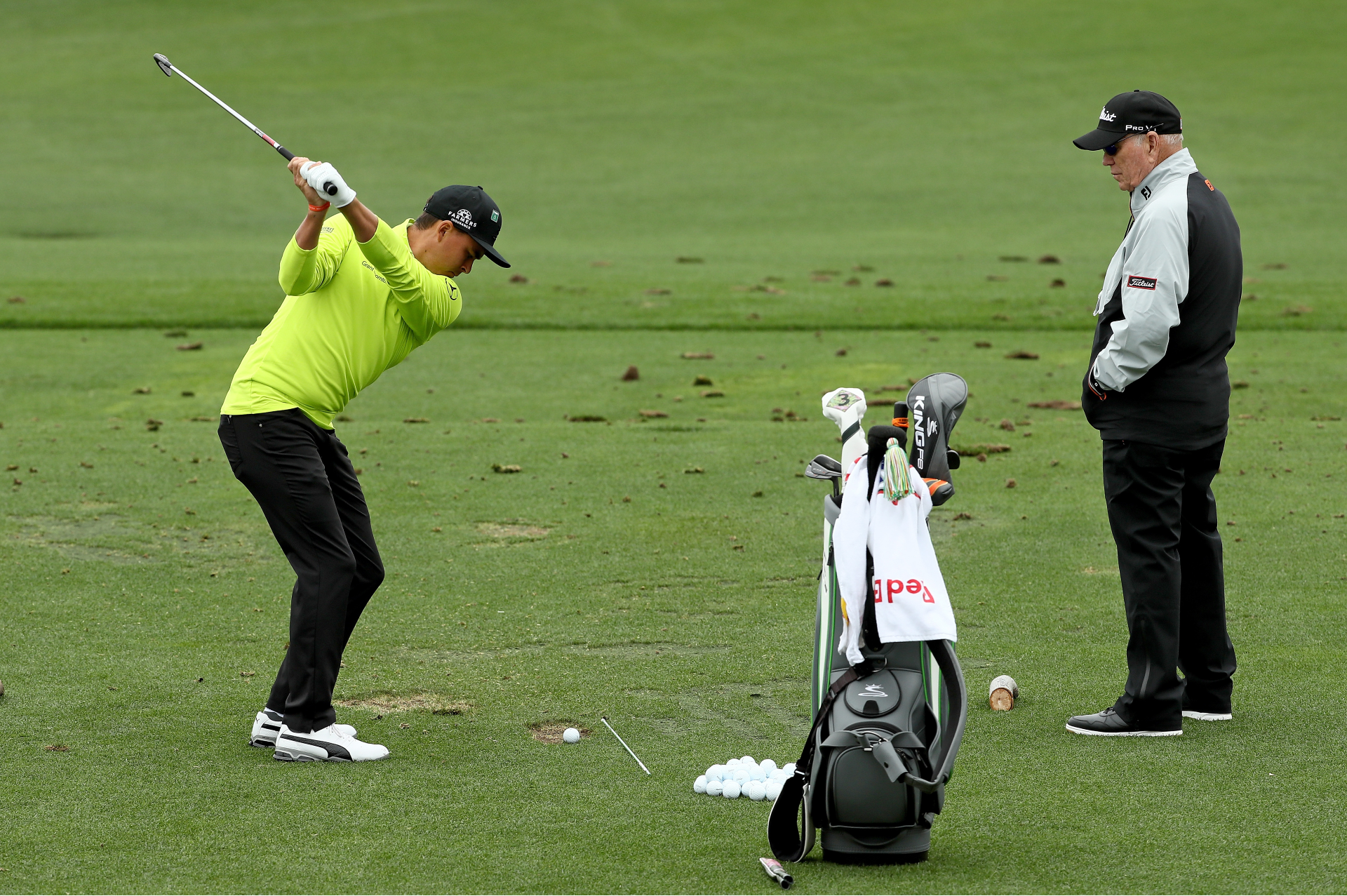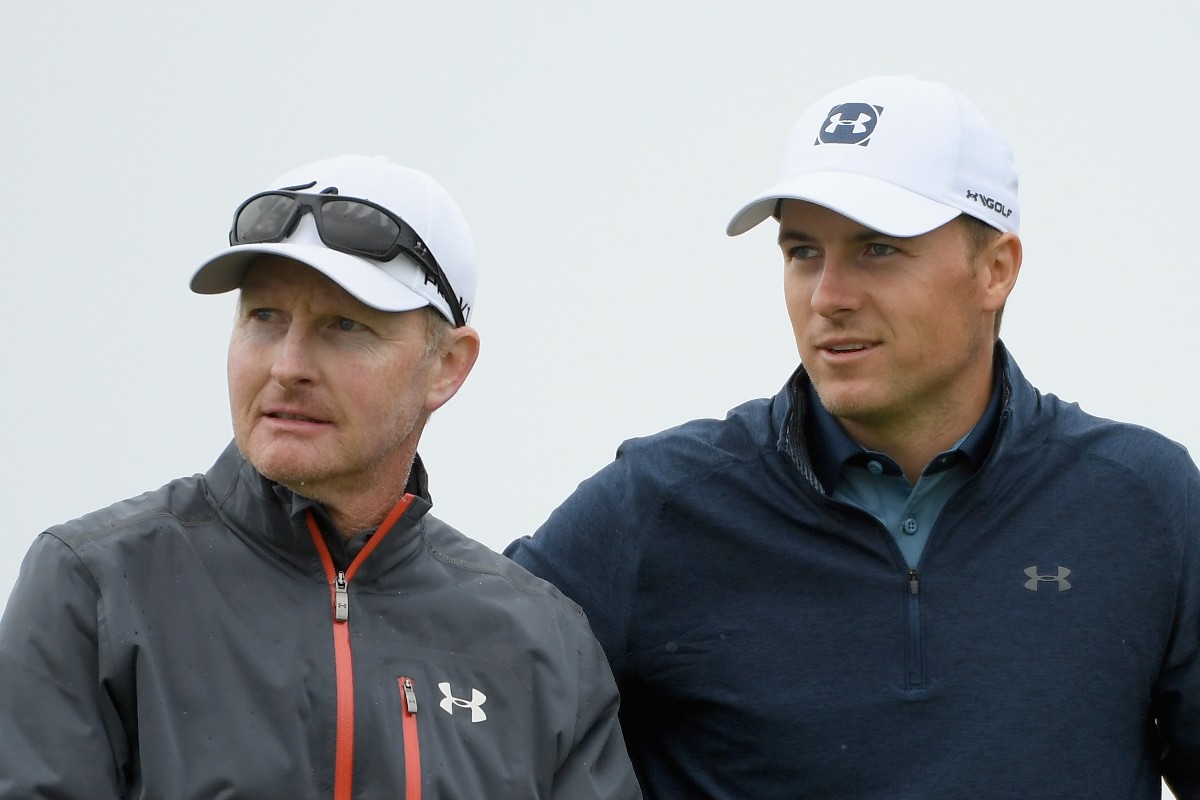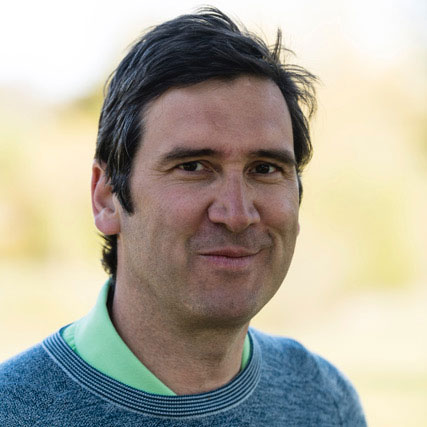What Makes A Great Golf Coach?
We spoke to leading performance expert Dr Paul Schempp on how best to identify a great teacher


Subscribe to the Golf Monthly newsletter to stay up to date with all the latest tour news, equipment news, reviews, head-to-heads and buyer’s guides from our team of experienced experts.
You are now subscribed
Your newsletter sign-up was successful
Want to add more newsletters?

Delivered daily
Daily Newsletter
Sign up for all the latest tour news, gear reviews, head-to-heads and buyer’s guides plus features, tips from our top 50 coaches and rules advice from our expert team.

Once a week
Kick Point
Sign up to our free Kick Point newsletter, filled with the latest gear reviews and expert advice as well as the best deals we spot each week.

Once a week
Women's Golf Edit
Sign up to our free newsletter, filled with news, features, tips and best buys surrounding the world of women’s golf. If you’re a female golfer, you won’t want to miss out!
When we first launched our Top 25 UK Coaches list we used a questionnaire that was devised by Dr Paul Schempp. He is a professor at the University of Georgia and he also put together Golf Magazine’s Top 100 US Coaches. The performance expert has authored six books including the award-winning 5 Steps to Expert. We spoke to him about the process of identifying the best coaches out there.
How long should a questionnaire be to get the best out of people?
We always try to shoot for how long it would take for an instructor to complete it and I always went for under 30 minutes. And that is tough with some of the depth that people like to go into, we sometimes got books back. From one page of questions you should be able to get enough.
The foundation comes from three areas; the skills, the top teachers have a more fine set of skills than less effective teachers. Knowledge, but more than just knowledge of the swing, we always try and look for knowledge of the game and the history, architecture, psychology and people so a bit more in depth than just focusing on the swing. So many instructors were just looking at a swing and not even looking at a golfer, and the best ones, for example Butch Harmon, it was about getting to know the person first so they best knew how to teach that person. He said that he didn’t teach golf and he backed it up by saying that he teaches people to play golf and that made all the sense in the world.
And the third area is experience - we tried to find people with a variety of experiences with different levels of golfers and not just who’s teaching the top golfers. Justin has been playing since he was a little kid so who gave him those foundations? So children, women, high handicappers, people with disabilities – that indicates a great teacher.
Related post: Meet our UK Top 50 Golf Coaches
What is your favourite question?
Subscribe to the Golf Monthly newsletter to stay up to date with all the latest tour news, equipment news, reviews, head-to-heads and buyer’s guides from our team of experienced experts.
The most illuminating is to describe a typical lesson. How do you open it, how do you determine what you’re going to teach and how do you close it? It surprised me that many of them are just trying to fix what they see is broken but the best ones tend to get to know who the student is first.
If it’s the first time meeting someone then take 10-15 minutes getting to know who the person is and understand a student’s history in terms of performance and physical characteristics, injuries and motivations. Someone with aspirations to being highly competitive is very different to someone just trying not to embarrass themselves.
Then see if they had a goal, there are several ways to do that, many by watching a student warm up and assess their swings, goal setting is another one and then it’s working towards that goal. One of the differentiators was to hear an instructor say all about the grip or stance first – no, it’s really about the student first.
And finally, how do they close it? Opening and closing two critical points, many do it because the watch says the lesson is over but the really great ones do things like making sure that the last ball hit or the last hole played is the successful one, you want them not wanting to leave the lesson tee.
Find out what a student remembers from the lesson, what were the key points in what they learnt so what are you now able to do? The last one is here are some activities to practise as a lesson alone isn’t going to make you better. Again the differentiators are that the really good to average good ones realise it’s a process and a journey and it’s not a one-time fix. Multiple lessons work and have packages available to continuing the lesson and not being a quick fix.

How important is it to stay true to yourself and not follow the latest trends?
This is a critical point, we run a resource lab at the University of Georgia and we study experts in coaching. We did a study with our Top 100 golf instructors in the US and we wanted to see the power of metaphor – didn’t tell them that we were specifically look for their metaphors and we videoed a lesson with 34 of these instructors and many of them used a lot of video. Two weeks afterwards we called the student and asked what they remembered and very few remembered anything from the video and, when given to take home, they never looked at it again. We asked why they used so much video and they said that the students expected them to as a top instructor. Now we have TrackMan as people expect those numbers and I’m not 100 per cent convinced that this is true, some of the really great teachers will use video, if it’s not helping then they won’t.
You can get sucked along by trends and think that if you’re going to be great then you have to pose as one and dress like one and you have to have a tour star on your roster.
Who is your favourite teacher from any walk of life?
All sports are so different, if we stick to golf then Butch Harmon is probably the best that I’ve ever seen. I’ve watched him work with Phil Mickelson and Adam Scott and I’ve watched him working with women in their 60s with very little physical abilities and he’s just great. If I videoed him doing five different lessons, if you couldn’t see his face, you would think it’s five different people, the way he interacts with people, he really connects.
Mike Bender, who has coached the likes of Zach Johnson and Lee Janzen, I really like the way he teaches feel and unique swing and what works. There are certain fundamentals and he makes sure that they’re there and then do you how put your game together? He and Cheryl Anderson make a dynamic duo.
Pia Nilsson and Lynn Marriott have a bit of a different approach and I like the way they do that. They have a think box and a play box, in the first one you should be analysing all the things like what’s the shot, wind and then you get in your play box and you’re letting it happen. Their perspective and ability to know their students has made them very successful – they work with everyone from rank beginners to tour pros all around the world.
What element do you think is overlooked in coaching?
Player relationships. Cam McCormick worked with Jordan Spieth since he was 12 and they have a very solid relationship, they are friends as well as anything else and that helps to make it quite effective. All the good ones understand the player. When you know somebody you know what to say, when to say it and how to say it and, probably most importantly, when to say nothing at all. Don’t let your coaching interfere with their learning or performance.
Are there any tweaks that you would make to the questionnaire?
I would probably put technology in there somewhere. One is the analysis, if a coach video tapes something it doesn’t mean that they have to use it in the lesson but they kind of have a document of that. There is lot of knowledge about how technology helps people analyse certain situations and you can go overboard but it can be very useful.
The second is the ability to communicate with a player, someone can send a swing/text/message from the other side of the world and we have so many modes of communication with people and that is so important in coaching.
How important is it to understand how a student best takes on info?
If one of my players is a school teacher then it will likely be more about relationships and how they feel confident in me and does it feel right? An engineer will likely want to see the video and the numbers, the spin rates and the progress, that gets their juices flowing. Juniors are much more receptive to understanding the use of video, that’s part of their world now so you how use that can be quite effective, for someone over 50 then that is less so.
For more on Dr Schempp click here

Mark has worked in golf for over 20 years having started off his journalistic life at the Press Association and BBC Sport before moving to Sky Sports where he became their golf editor on skysports.com. He then worked at National Club Golfer and Lady Golfer where he was the deputy editor and he has interviewed many of the leading names in the game, both male and female, ghosted columns for the likes of Robert Rock, Charley Hull and Dame Laura Davies, as well as playing the vast majority of our Top 100 GB&I courses. He loves links golf with a particular love of Royal Dornoch and Kingsbarns. He is now a freelance, also working for the PGA and Robert Rock. Loves tour golf, both men and women and he remains the long-standing owner of an horrific short game. He plays at Moortown with a handicap of 6.